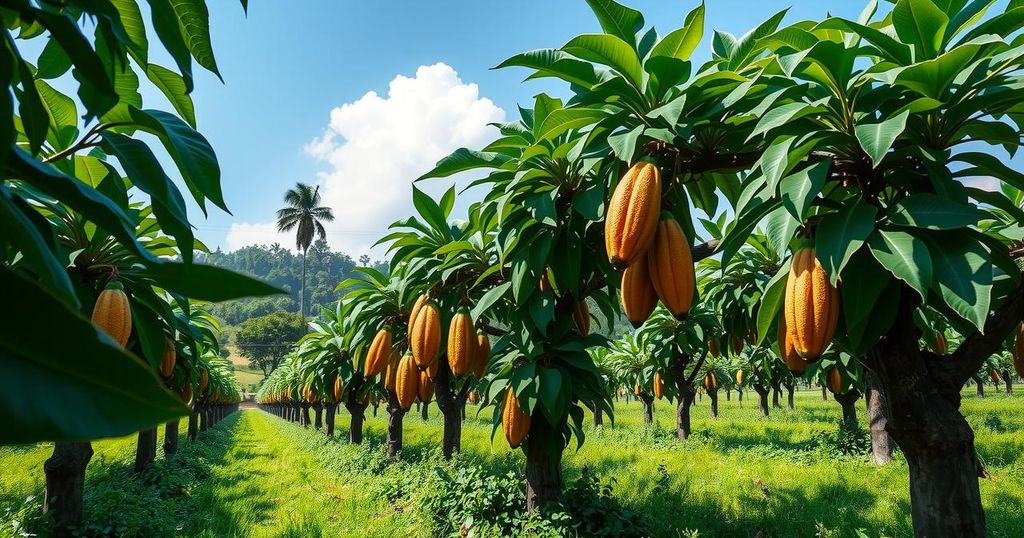Cocoa production in Ghana has dropped by 50% in three years, leading to significant financial losses. Dr. Cassiel Ato Forson, Minister of Finance, highlighted issues of mismanagement, debt, and market pricing discrepancies during the announcement of the 2025 Budget. The government aims to address these challenges with the 24-Hour Economy policy.
Cocoa production in Ghana has experienced a staggering decline of nearly 50% over the past three years, as reported by Dr. Cassiel Ato Forson, Minister of Finance. He underscored this point during the presentation of the 2025 Budget and Economic Policy Statement in Parliament, noting that despite rising world market prices, cocoa is no longer effectively supporting the Ghanaian economy.
Dr. Forson revealed that the Ghana Cocoa Board (COCOBOD) was unable to supply the anticipated 330,000 tonnes of cocoa for the 2023/2024 crop season, resulting in certain supply contracts being deferred to 2025. He stated that the mismanagement of the cocoa sector over recent years has led to its current precarious state, endangering its indispensable role in Ghana’s economy.
He further articulated that the contracts rolled over to 2025 would incur additional losses amounting to $495 million in that year. This translates to a financial setback of $4,000 in revenue lost for every tonne of cocoa delivered under these contracts this year, adversely impacting both COCOBOD and Ghanaian farmers.
The Minister also disclosed that COCOBOD’s outstanding debt has ballooned to GH¢32 billion, with preparations needed for approximately GH¢11.92 billion due in 2025. Additionally, there were outstanding cocoa road contracts totaling GH¢21 billion ($1.3 billion) for 2024, of which only GH¢4.4 billion had been accounted for in COCOBOD’s financial documents.
Dr. Forson highlighted that forward sales contracts from 2023/2024, secured at lower prices than the prevailing market rates, have generated revenue losses of roughly $840 million and significantly impacted the livelihood of cocoa farmers. Issues pertaining to market price differentials and smuggling were also raised, warning that the disparity between market prices and farmer payments not only fosters illegal activities but jeopardizes the sustainability of the cocoa industry in the long run.
Acknowledging the various challenges facing essential economic sectors, Dr. Forson affirmed the government’s commitment to addressing these difficulties. He announced the pursuit of the 24-Hour Economy policy, which aims to stimulate economic growth and job creation, and expressed intentions to present this policy to Parliament in the near future.
Ghana’s cocoa production has plummeted by nearly 50% over the past three years, significantly undermining its economic stability. The challenges include financial losses from mismanagement, high debts, and market discrepancies leading to smuggling risks. The government has vowed to tackle these difficulties through new policies aimed at revitalizing the sector and improving economic conditions.
Original Source: www.ghanabusinessnews.com




